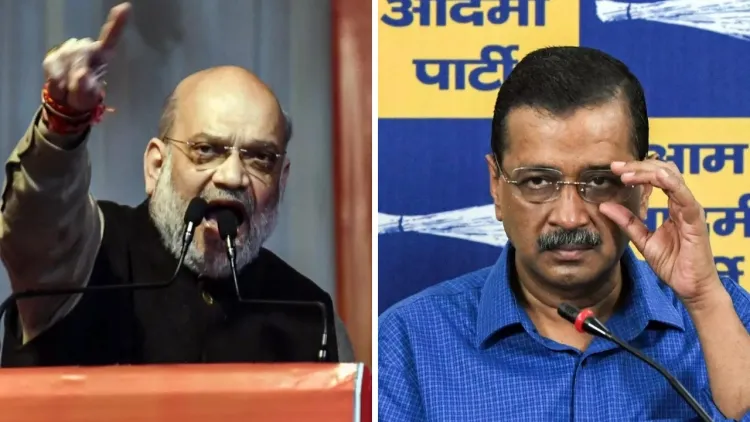Delhi Assembly Elections 2025: Setbacks for AAP and Controversy Over Yamuna River Pollution
As India approaches the Delhi Assembly elections scheduled for February 5th, 2025, the ruling Aam Aadmi Party (AAP) has encountered a major setback. Seven sitting Members of the Legislative Assembly (MLAs) have resigned from the party just days before the polls.

These resignations have left the AAP with a significant challenge, as the party prepares to face off against its political rivals, including the BJP and Congress, in a high-stakes election battle.
At the same time, the poll campaign rhetoric is heavily centered around the controversy over pollution in the Yamuna River, which has become a key issue in the elections. Let’s delve deeper into these developments and their potential implications for Delhi’s political landscape.
AAP Faces Major Setback as 7 MLAs Resign
In a stunning turn of events, seven AAP MLAs announced their resignation from the party earlier this week, just days before the Delhi Assembly elections. This includes prominent members such as Bhavana Gaur (Palam MLA), Madan Lal (Kasturba Nagar MLA), and Rohit Meherolia (Trilokpuri MLA).
These resignations came after the AAP decided not to reissue tickets to these MLAs, instead opting for new candidates for the upcoming elections. The move has raised questions about internal party dynamics, with critics alleging a lack of internal democracy and transparency within the AAP. The resignations of these MLAs could significantly affect the party’s ability to retain its dominance in the Delhi Legislative Assembly.
While the AAP remains confident in its ability to secure a majority, these high-profile exits could make it more difficult to defend its current positions. The party will now have to rally its supporters in the face of this unexpected blow.
Controversy Surrounding the Yamuna River Pollution
One of the central themes of the ongoing election campaign has been the pollution in the Yamuna River, a critical environmental issue in Delhi. The controversy has sparked political exchanges between AAP, BJP, and Congress, with each party accusing the others of failing to address the issue effectively.
Arvind Kejriwal’s Allegations Against Haryana
On Friday, Arvind Kejriwal, the Chief Minister of Delhi and leader of the AAP, responded to the Election Commission’s demand for evidence regarding his accusation that the Haryana government was poisoning the Yamuna River. Kejriwal had previously claimed that Haryana was releasing ammonia into the river, worsening its contamination.
In his reply to the Election Commission, Kejriwal alleged that the Chief Election Commissioner (CEC) was siding with the BJP if it did not take any action against Haryana. The AAP chief also accused the Election Commission of failing to act on complaints made by Delhi leaders, including Atishi and Bhagwant Mann, about the ammonia contamination. According to Kejriwal, no action was taken despite the written complaints and requests to address the issue.
The controversy intensified when the Election Commission asked Kejriwal to refrain from linking the rising ammonia levels in the river to the alleged poisoning, while the BJP seized on this as another opportunity to criticize the Delhi CM’s statements.
BJP’s Political Rhetoric on Haryana and Delhi's Pollution
During a rally in the Dwarka locality, Prime Minister Narendra Modi strongly criticized the Delhi government’s handling of pollution, especially with regard to Haryana. Modi’s speech targeted the ruling party, stating that they have a deep-rooted hatred for Haryana and its people, especially in relation to the issue of pollution.
PM Modi claimed that the AAP was falsely blaming Haryana’s farmers for the pollution in Delhi, even though the actual problem lies with the Delhi government's inaction on critical environmental measures. He also condemned the AAP’s record on addressing pollution, referring to the party’s repeated failures in taking meaningful steps to improve the air quality in Delhi.
This rhetoric is expected to play a significant role in the BJP’s election strategy, as it seeks to capitalize on the growing concerns about Delhi’s deteriorating environment.
Congress’ Criticism of Kejriwal's Promises on Yamuna
On the other hand, Congress has also weighed in on the issue of Yamuna pollution. Congress accused Arvind Kejriwal of failing to fulfill his 2015 election promise to clean the Yamuna River. Despite declaring his commitment to cleaning the river, Kejriwal has faced increasing criticism for his government’s inability to deliver on the promises made nearly a decade ago.
Congress leaders pointed to Kejriwal’s statement during the 2015 campaign when he had said, “Don’t vote for me if I don’t clean the Yamuna.” With the issue still unresolved, Congress has raised questions about the lack of progress on the clean-up initiative and has urged Delhi voters to hold the AAP accountable for its unfulfilled commitments.
Conclusion: A Crucial Election for Delhi's Future
The Delhi Assembly elections are just around the corner, and the political rhetoric continues to intensify. With the resignation of key AAP MLAs and the ongoing controversy over Yamuna pollution, the stakes could not be higher. While AAP remains confident in its ability to secure victory, the party’s internal troubles and mounting criticism over environmental issues could influence voter sentiment.
As the BJP and Congress both sharpen their attacks on Kejriwal’s leadership, the election commission’s handling of the pollution allegations will likely be a pivotal issue in the final days of the campaign. The future of Delhi’s governance and its commitment to environmental reforms will likely play a key role in shaping the outcome of these elections.
What's Your Reaction?














